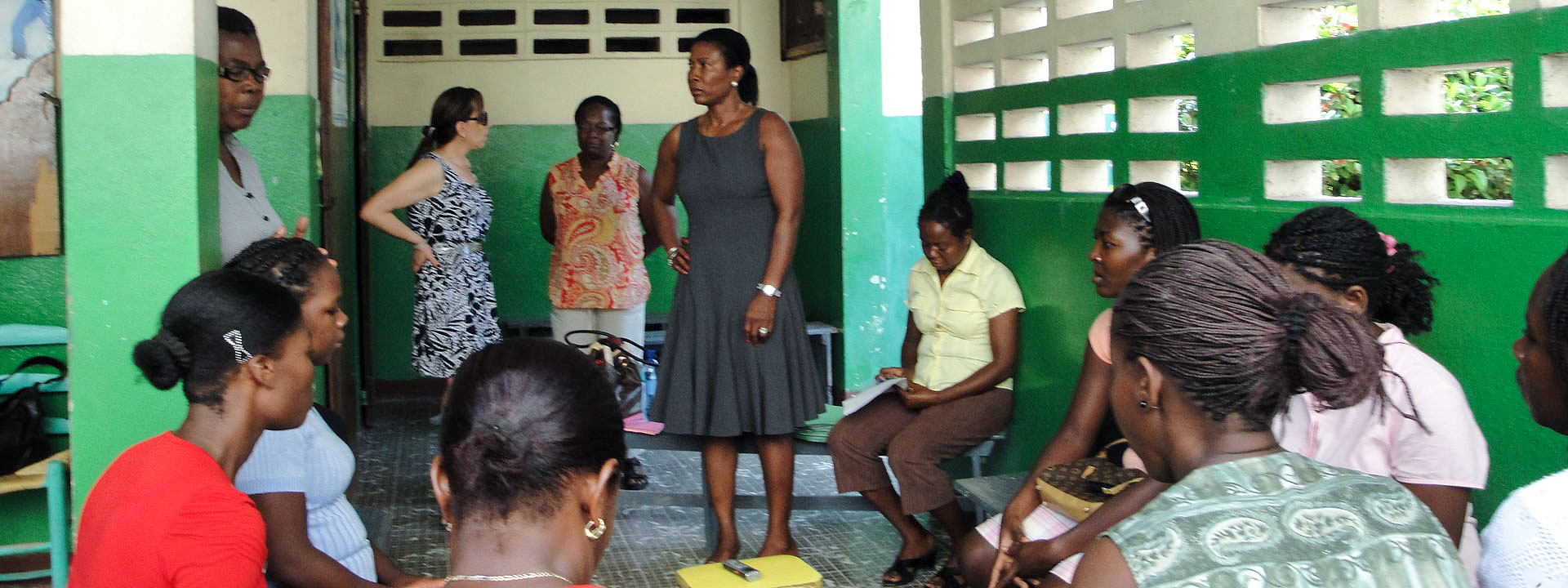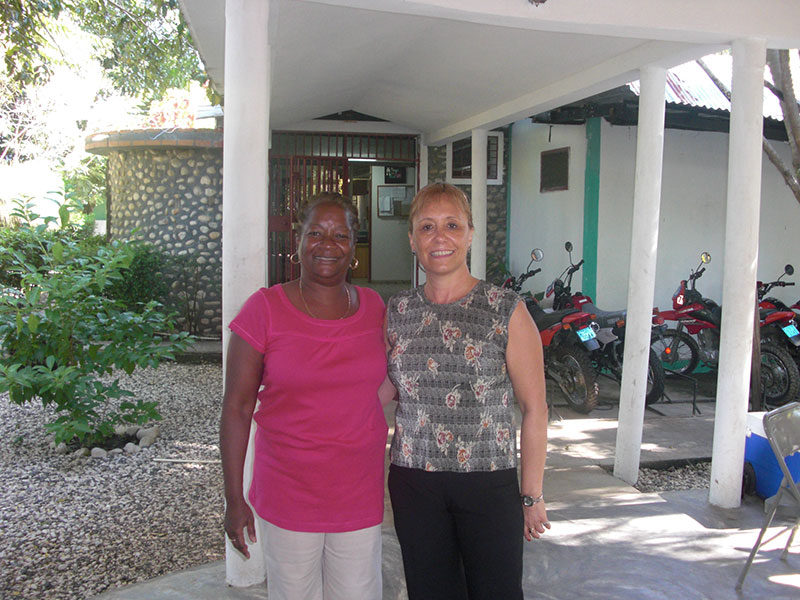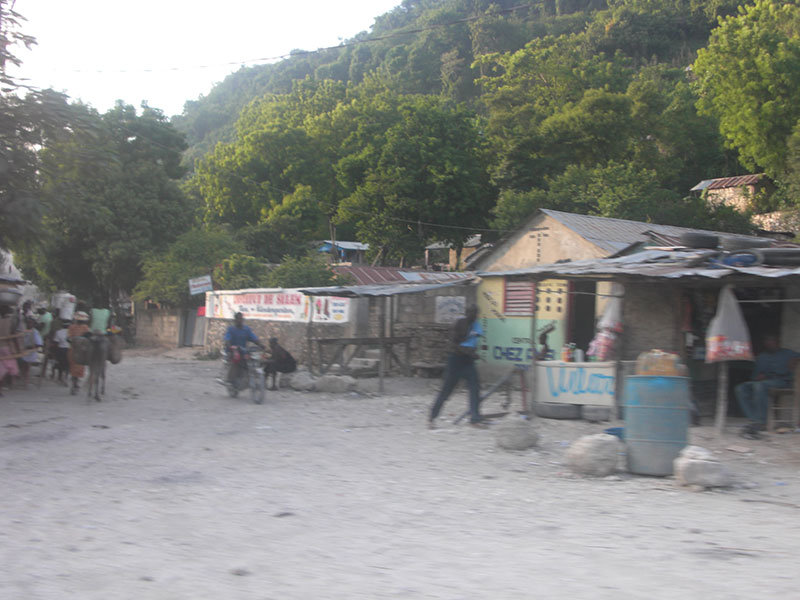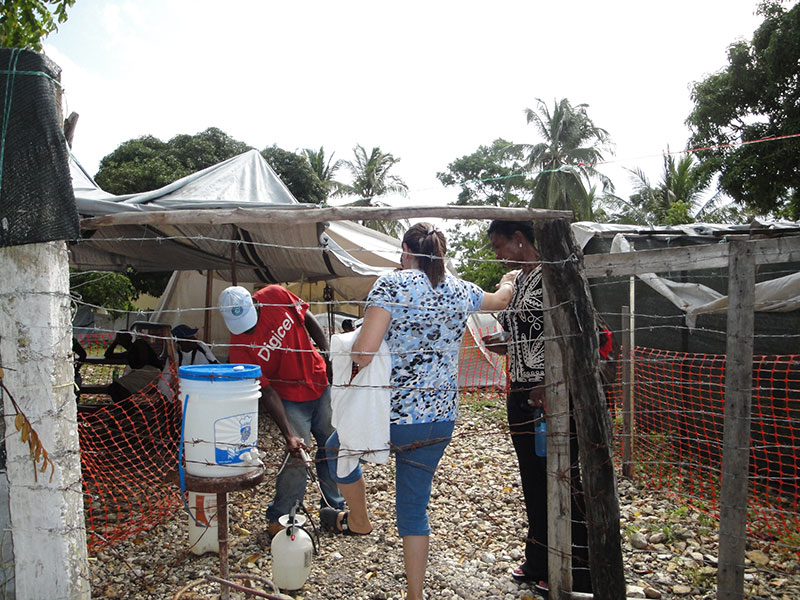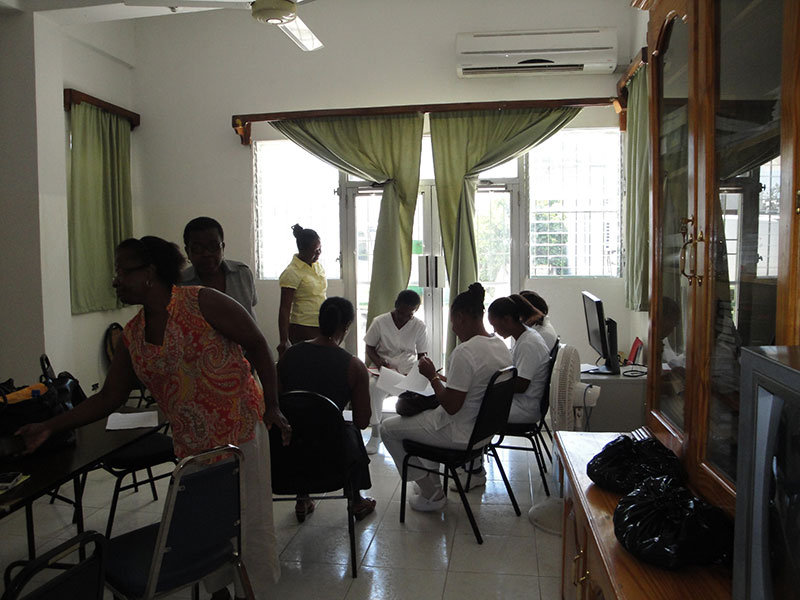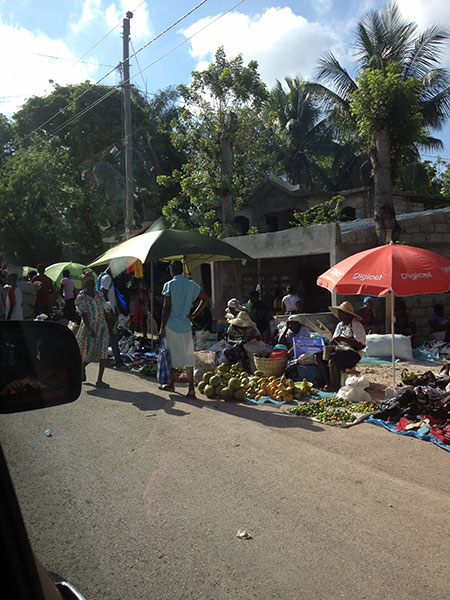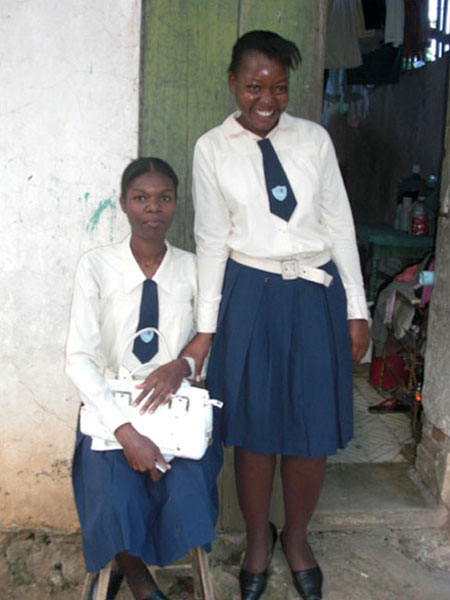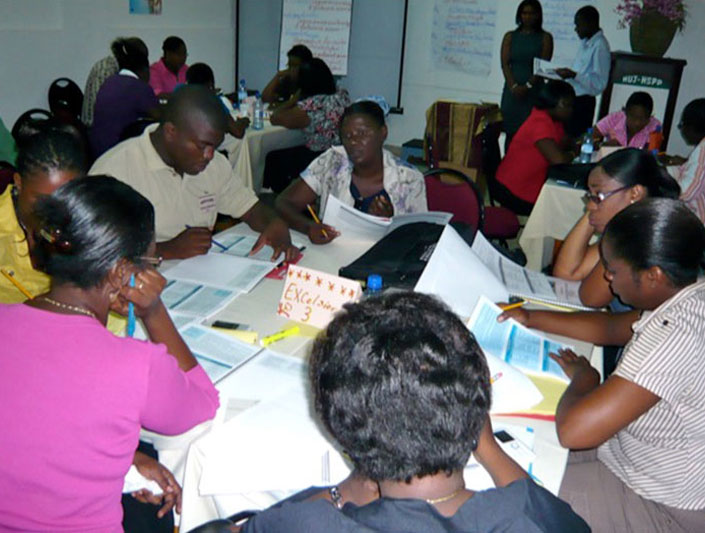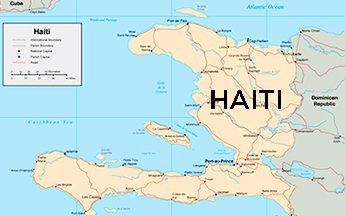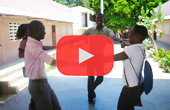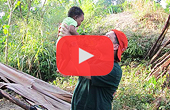The School of Nursing and Health Studies wants to establish the first nurse-midwife program as a pilot in the southwest region of Haiti.
The woman sits down with nurses at a small health care center in Les Cayes, a port city in the southwest region of Haiti on the Caribbean Sea. She speaks quietly about the birth of her last child and how, like most of the women in her village, she delivered at home, without a nurse midwife or other skilled health care worker.
She was among the lucky ones. In a country where more women and babies die during pregnancy and childbirth than in any other country in the Western Hemisphere, she and her baby survived. But shortly after giving birth, the woman began feeling sad.
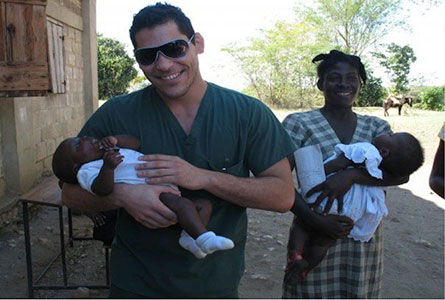
Nursing student Felipe Novoa volunteers in the southwest region, where most women deliver their babies at home.
A faculty member from the School of Nursing and Health Studies (SONHS) explains to the woman that her feelings are common among new mothers. The woman is relieved to learn that a chemical imbalance, rather than an evil spirit, was causing her to feel so despondent.
Lack of follow-up care, plus a cultural tradition that keeps Haitian women isolated in their homes for several weeks after giving birth, can increase their risk for postpartum depression. Some women receive care from a lay birth attendant, called a matron, but most matrons don’t have sufficient education to handle complications or recognize that an illness can be treated at a hospital. Instead they may tell mothers the problem has a supernatural cause.
SONHS Associate Professor Rosina Cianelli, Assistant Professor Carole Wilkinson, Marie Chery (a member of the SONHS team who died unexpectedly in March 2014), and other colleagues spent two weeks of every month during 2012 in the southwest region of Haiti to assess maternal-child health needs. SONHS Dean Nilda (Nena) Peragallo Montano also visited the region to participate in the study at the Les Cayes School of Nursing and surrounding health centers.
Funded by a grant from the W. K. Kellogg Foundation, researchers worked with the region’s Minister of Health and its only nursing school to conduct focus groups or face-to-face interviews with 39 health care workers and 80 Haitian women who had at least one delivery in the past ten years. The women were from surrounding hillside villages or a nearby island that has no cars and requires a 30-minute boat ride to reach the nearest hospital.
“This is the first time in my life that I put a request for a mule on a grant proposal,” says Cianelli, principal investigator in the study. “Can you imagine a woman in labor having to travel by mule down the mountain?”
The researchers discovered that 80 percent of women in the southwest region deliver babies at home, assisted by a lay birth attendant. Common complications for these mothers include anemia, infection, hemorrhage, premature delivery, and preeclampsia/eclampsia, a disorder that causes high blood pressure and other complications. Babies frequently suffer from low birth weight, prematurity, infections, tetanus, diarrhea, and malnourishment.
Can you imagine a woman in labor having to
travel by mule down the mountain?
Based on the results of their assessment, Cianelli, Wilkinson, and colleagues proposed a strategy for improving maternal-child health in southwest Haiti. Recommendations include creation of the first nurse-midwife program in the region; implementation of continuing education for nurses; better training for lay birth attendants; and development of educational programs to encourage breastfeeding, decrease intimate partner violence, and prevent HIV and other sexually transmitted infections.
Cianelli is working with the Haitian Minister of Health to apply for a grant that would enable her team to return to Haiti and implement their recommendations. They know their efforts will make a huge difference for maternal and neonatal health, first in Les Cayes and then in other villages with similar limitations to care.
“There are health disparities around the world,” Cianelli says, “but I can’t even explain to you how many disparities there are in Haiti that could be improved.”
Cianelli and her team have a long-standing connection to the island. They had been working with a midwifery school in Port-au-Prince to strengthen its curriculum, but their progress ended when the 2010 earthquake damaged the school and killed several faculty and administrators. After the quake, Cianelli, Wilkinson, and Guerda Nicolas, associate professor at the School of Education and Human Development, flew to Cap-Haïtien—a region in northern Haiti that was flooded with evacuees—to train urban and rural health workers on how to address the community’s urgent mental health needs.
The School of Nursing and Health Studies is designated a Collaborating Centre for Nursing Human Resources Development and Patient Safety by the Pan American Health Organization/World Health Organization. The school is committed to strengthening nursing education, developing the nursing workforce, and improving patient safety throughout the Americas. By sharing knowledge and practices developed in Miami and around the world, the school has helped thousands of Haitian health care workers deliver quality care to the people of their country.
“When the people see us, they know we’re there to help them, and they’re so appreciative,” Cianelli says. “Haiti is part of the Americas; it’s our responsibility.”
